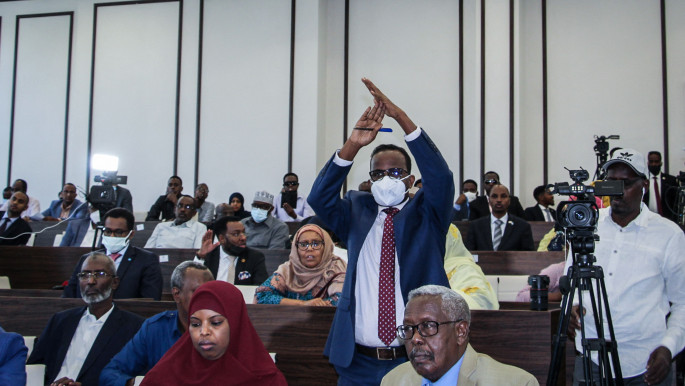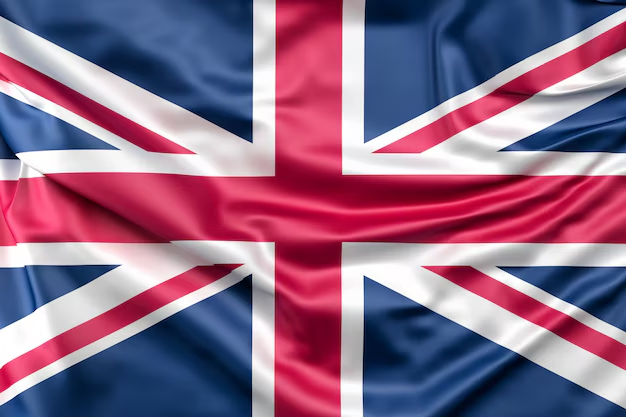
The Somalian President Mohamed Abdullahi Mohamed has suspended the power of the Prime Minister Mohammed Hussein Roble to hire and fire officials, causing an escalation of internal unrest in the Horn of Africa nation. The Prime Minister, accused to have stolen lands owned by the Somali National Army and to have interfered with a Defence Ministry’s investigation, will not be able to regain its power before the conclusion of the elections later this year.
The dispute between the President and the Prime Minister of Somalia has provided months of tensions in a country already destabilized by militant attacks and clan riots. Days after the attempt of the Somali President to suspend the Prime Minister Roble, hundreds of security forces loyal to him camped near the presidential palace, while the latter encouraged all of them to only take orders from him and not from the President. The Prime Minister’s trusty troops are gathering now in the area fitting pickups trucks with artillery weapons. Surely, the worst scenario may occur if the President Mohamed’s corps engage in a fight against the Prime Minister’s security forces.
The tension between Mohammed and Roble began in April 2020, when the President unilaterally extended his four years term by a further two years. This event triggered the reaction of both the army factions, which were prompted to seize rival positions in Mogadishu, the Somali capital. The fight between the two army groups resulted in around 100.000 people forced to leave their homes. The resolution of the tensions was reached when the President gave to the Prime Minister the responsibility to organise and ensure the security of parliamentary and presidential elections, and when the Parliament, in the meanwhile, rejected the decision to extend the term of Mohamed presidency.
Nowadays, again, the internal dispute between the President and the Prime Minister increases day by day. Recently, the two eminent figures are playing a blame game in which each accuses the other of delaying ongoing parliamentary elections, that should have been concluded on the last December 24th. The parliamentary elections started on November 1st and, at present, the numbers of lawmakers elected are only 30 of the 275 representatives that should be appointed. Mohamed has accused Roble of holding up the electoral process to extend his mandate, while the latter called the moves of Mohamed as a coup attempt against the government and the national constitution aiming to undermine the electoral process. On December 26th, the two figures of the Somalia’s government released two different statements in which they declared they would hold separate meetings in order to find a solution for the election delay. Furthermore, the President Mohammed in his statement added the necessity to find a capable leadership to lead a timely and transparent election process.
The content of these statements reflects the tension between the involved actors who are blocking the electoral process which is extremely relevant for Somalia, in view of the fact it would be the first direct election in more than 30 years.
This political instability, the continuing delays and the procedural irregularities related to the parliamentary elections in Somalia, have raised the United States’ concerns. They are calling for a rapid conclusion of the elections and a resolution of the dispute which is threatening the credibility of the electoral process and destabilising the entire country. The United States officials’ main fear is that such political instability and the clashes could distract the government from its battle against the insurgency of al Shabaab, a militia linked to al Qaeda. It seems clear that the United States support the Prime Minister’s position and its efforts to conduct a rapid and credible election process. In view of that, the United States Department African Affairs Bureau said that they are ready to take action against anyone who tries to undermine Somalia’s path to peace. The Bureau has renewed its concern for the current situation in Somalia and for the unilateral actions taken by the President, putting pressure on both parties involved to desist from escalatory actions and statements.
Sharing the same concern of the United States, other international allies of Somalia, among which the United Nations, the United Kingdom and the European Union, are in talks with the Somalia’s Prime Minister and President to urge them for a concrete de-escalation of the tensions and of their political feud. The talks involving the aforementioned global body’s partners of Somalia are trying to persuade both parties to focus all the efforts on the election in order to correct the electoral deficiencies and conclude the representatives’ choosing without any other delay.
The fear of the international body’s partners have recently concretized after a unit of fighters from Somalia’s al Shabaab militant group, backed by al Quaeda, attacked a town in the north of the capital, Mogadishu. During the battle between the government security forces and the militant group, seven people were killed, among which five soldiers and two civilian women. The militant group attacked the town when few soldiers were present in the area, capturing the town and overrunning the government forces that were there to defend the bridge located at the entrance of the town. The attacks by the militant group al Shabaab are frequent in Somalia’s territory, especially in this particular moment in which a political feud is occurring between the two leaders of the government. In November, an explosion of a bomb near a school in Mogadishu killed eight people, while seventeen were wounded, among which schoolchildren. The tremendous attack was claimed by al Shabaab, who affirmed that their intent was to strike a United Nations’ security convoy passing near the school.
In light of that, it is clear that Somalia is living a deep crisis due to different causes. On one hand, we may see the internal political dispute between the two pillars of the government, that is providing tensions between the security forces loyal to each actor who are distracting from their fight against the militant group al Shabaab. Furthermore, this dispute is destabilising a country which is trying to carry out its first direct election since more than three decades, despite all the difficulties related to the clan riots and militant attacks.
On the other hand, the United Nations is really concerned about the rapidly worsening drought in Somalia, that has affected around the 80 percent of the population of the entire country. These elements portray one of the worst scenario of Somali history, in which it is hard to do this crucial step forward represented, as already said, by the first direct elections of its representatives.
Sources:
U.N. and partners urge feuding Somalia leaders to reduce tensions, available at: https://www.reuters.com/world/africa/somali-pm-discusses-political-situation-with-us-official-2021-12-29/
Somalia’s PM accuses president of ‘coup attempt’ after powers suspended, available at: https://www.reuters.com/world/africa/somalias-president-suspends-prime-minister-over-corruption-probe-2021-12-27/
Security forces loyal to Somalia PM gather outside presidential palace, available at: https://www.reuters.com/world/africa/us-says-supports-somalian-pms-efforts-rapid-credible elections-2021-12-28/
Somali President, PM trade accusations over delays to ongoing elections, available at: https://www.reuters.com/world/africa/somali-president-pm-trade-accusations-over-delays-ongoing-elections-2021-12-26/
UN sounds alarm on Somalia’s ‘rapidly worsening’ drought, available at: https://www.aljazeera.com/news/2021/11/19/un-sounds-alarm-on-somalias-rapidly-worsening-drought
Al-Shabab bombing near Mogadishu school kills at least 8, available at: https://www.aljazeera.com/news/2021/11/25/large-explosion-rocks-somali-capital-mogadishu
Somalia’s al Shabaab fighters kill at least 7 in attack near capital, available at: https://www.reuters.com/world/africa/somalias-al-shabaab-fighters-attack-town-near-capital-kill-7-police-residents-2021-12-30/
By The European Institute for International Law and International Relations.














